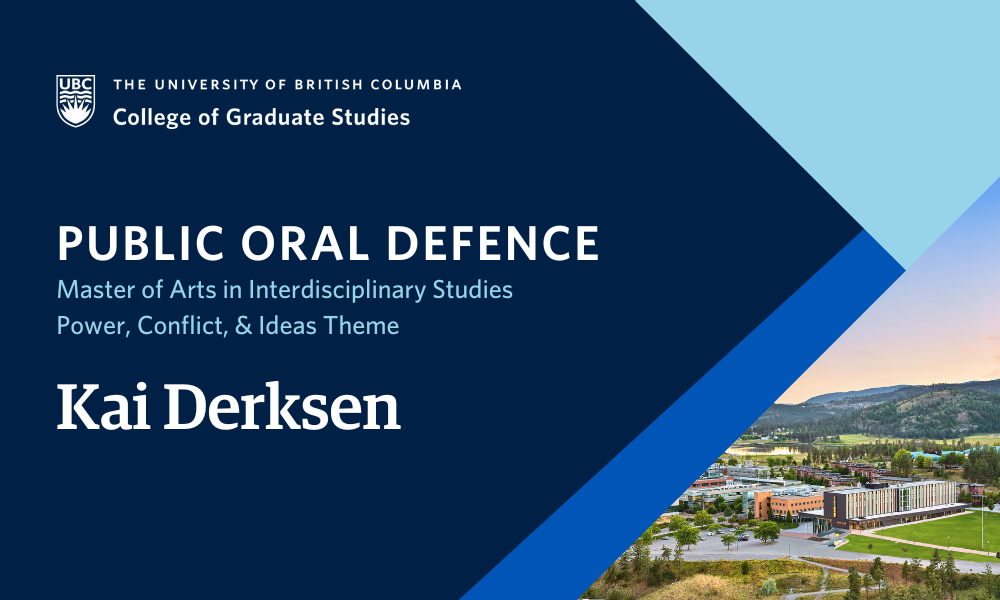
- This event has passed.
Thesis Defence: Incineration Without Representation—A Critical Analysis of the Forgotten History of Canadian Nuclear Weapon Possession
March 27 at 10:30 am - 2:30 pm

Kai Derksen, supervised by Dr. Tim Paulson, will defend their thesis titled “Incineration Without Representation: A Critical Analysis of the Forgotten History of Canadian Nuclear Weapon Possession” in partial fulfillment of the requirements for the degree of Master of Arts in Interdisciplinary Studies – Power, Conflict, & Ideas theme.
An abstract for Kai Derksen’s thesis is included below.
Defences are open to all members of the campus community as well as the general public. Registration is not required for in person defences.
ABSTRACT
The history of Canadian nuclear possession from 1950-1984 is an overlooked topic, both among the general public and historians. The limited work that does exist on the topic is not only now outdated, but ultimately fails to consider some of the more pertinent questions that may help to reveal how and why Canada became nuclear capable. This study therefore aims to address these deficits in existing literature, analyzing the relationships that influenced Canadian nuclear possession and how this period came to shape current Canadian national security and nuclear policy. In addition to this, through the adoption of the sociological framework of Critical Theory, it will take a deeper look at the US-Canadian relationship during this period, critically analyzing the power dynamics, both economic and political, that existed therewithin and contributed to events. To accomplish these tasks, this study relies heavily on diplomatics and discourse analysis of the pre-existing literature that exists on the topic of Canadian nuclear possession and the recently declassified body of primary documents within archives and databases. This study will be broken down into two main sections. The first will be a historical chronology that details the period of Canadian nuclear possession, and the second, a theoretical analysis that considers the how and why behind nuclear possession and the decision to ultimately abandon said possession. This study is part of a wider attempt to influence Canadian national security and nuclear policy, which since the Cold War has been largely dominated by the US interests. It therefore argues that Canada must reevaluate its relationship to the US – politically, militarily, and economically. It is only once this is achieved that Canada can move beyond the outdated practices of the Cold War and truly begin working towards a nuclear-weapon-free future.